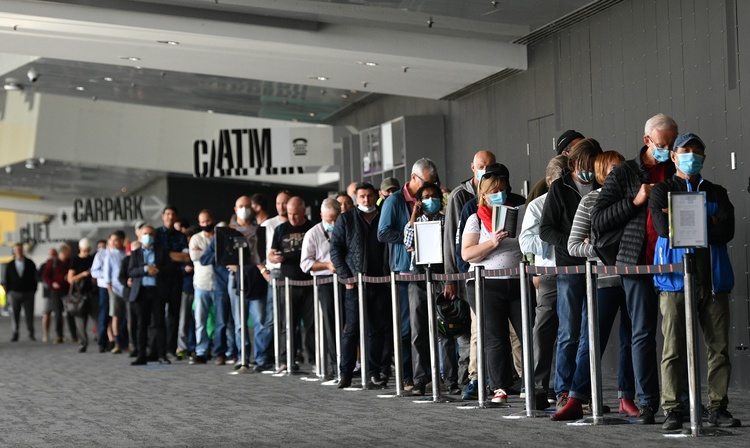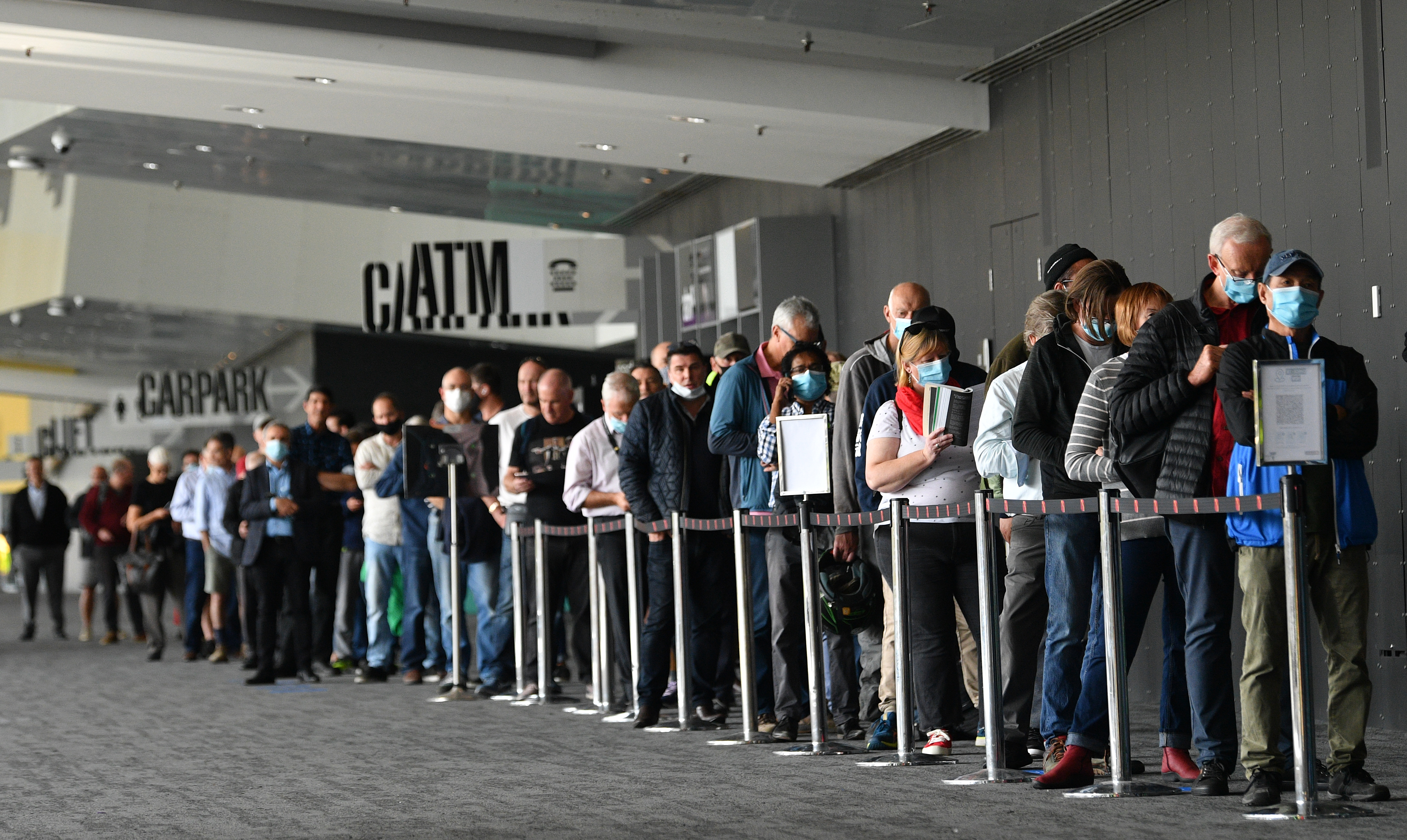For 20 days — an epidemiological eternity — the viral strain that prompted Victoria’s latest lockdown moved freely in our community, hidden from view.
The detection of the latest outbreak once again closed businesses and emptied streets overnight.
This time, however, Victorians have a fifth reason to leave their homes: getting vaccinated against COVID-19.
Last week, the Victorian government’s COVID-19 vaccination hotline crashed after receiving 77,000 calls in a 15-minute window.
An IT outage also affected two vaccination centres in inner Melbourne.
Despite teething problems, authorities have vowed to push on with the rollout.
Even the largest sector of the population is now eligible for vaccination: anyone aged between 40 and 49 can receive the Pfizer vaccine at state-run centres, provided they book an appointment in advance.
Meanwhile, anyone over the age of 50 is eligible for the AstraZeneca vaccine, either by appointment or walk-in.
Both vaccines require two doses; for the Pfizer vaccine, you need to wait at least three weeks between doses, while for AstraZeneca, it is recommended you wait 12 weeks between doses.
An expert’s perspective
Over the past few weeks, Salvatore Zagarella, a GP at the Niddrie Medical Centre, has been involved in the COVID-19 vaccination campaign on a daily basis.
“A lot of our patients are just going to the centre without an appointment in the morning and waiting,” Dr Zagarella said.
“They’re actually getting the vaccines that day.”
Dr Zagarella said there are a designated number of medical centres that are currently administering COVID-19 vaccines.
“General practices only administer AstraZeneca, while state-run clinics have both AstraZeneca and Pfizer,” he explained.
“They’re hoping to deliver Pfizer to general practices as well, but we don’t know when that will be.”
For now, those who are eligible to get vaccinated can present to a state-run clinic, such as a hospital, or one of the vaccination centres set up across the state, to receive either vaccine.
Those over 50 can also go to a general practitioner, for the AstraZeneca vaccine only.
“For hospitals and state-run centres you can just walk in and wait; general practitioners prefer bookings but it depends on how much stock they have,” Dr Zagarella said.
“Some practices may have 50 vaccines a week; at our practice we have 300.
“A larger practice such as ours has the ability to accept walk-ins with a wait, but appointments are preferred for most practices so that we can manage the doses.
“Also, we’re up to the three-month mark now for the second doses of AstraZeneca so we need to be more mindful to make sure that those patients have their needs met; appointments are given priority.”
While a growing number of Victorians are eager to get vaccinated, there are still many people who are hesitant to get the jab due to its known – and unknown – side effects.
“When there was no COVID-19 within the community, there was a great discussion because of the risks of blood-clotting with AstraZeneca; now that we have cases, that discussion is being had far less because people realise that the risk of getting COVID-19 – and its complications – is much greater and very real,” Dr Zagarella said.
“Fortunately, through the media the absolute numbers are being stated but they don’t really give you a perspective of how risky it is; we’ve had one death due to blood-clotting in Australia but over 4 million doses have been administered.
“The technology behind the AstraZeneca vaccine is very well studied; it’s the way we’ve been making vaccines for over 50 years.”
The Italian community’s experience
Bruno Petrocco
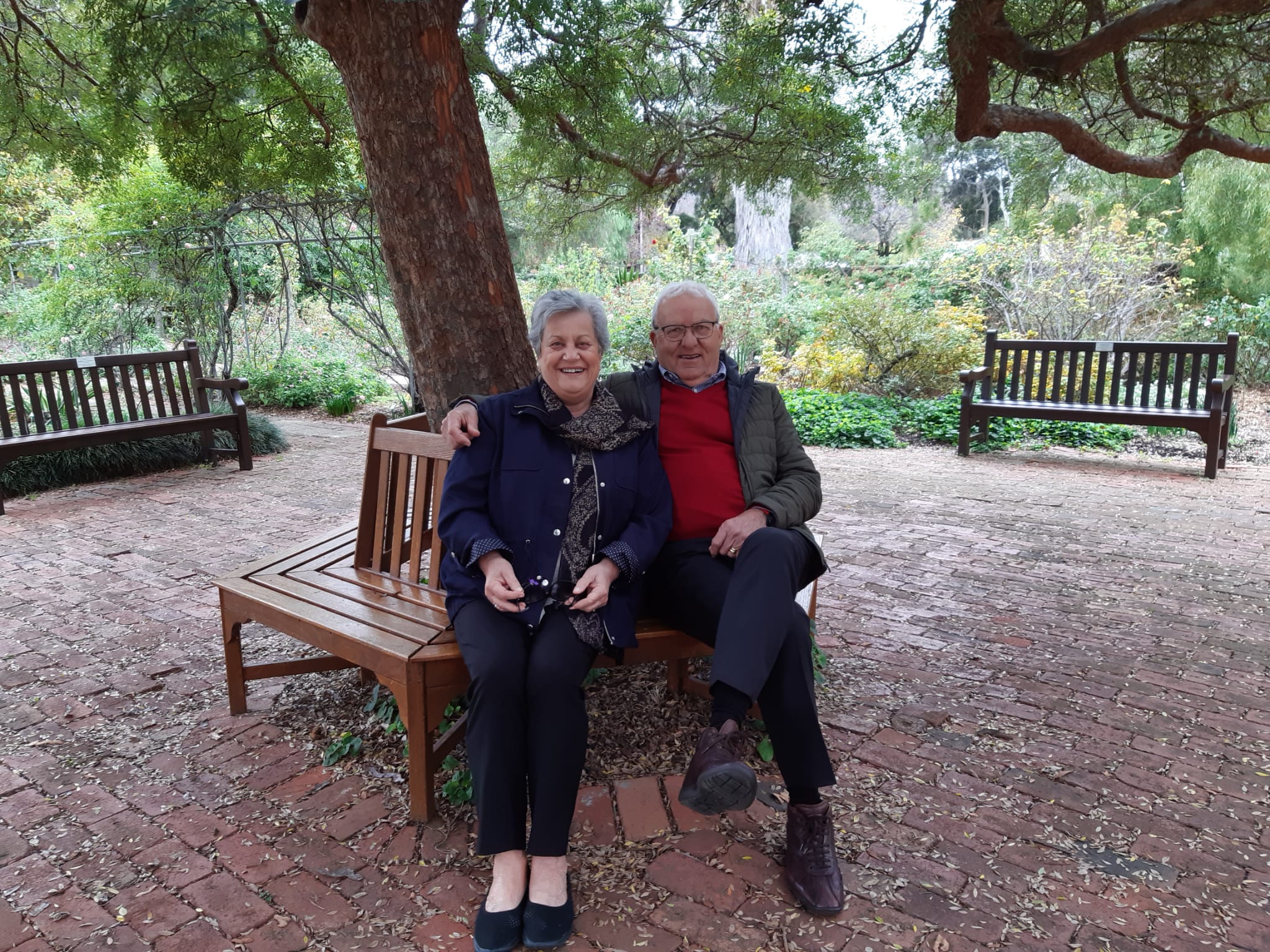 The religious coordinator of the San Gabriele dell’Addolorata Melbourne Association, Bruno Petrocco, has already received the first dose of the AstraZeneca vaccine, as has his wife Caterina.
The religious coordinator of the San Gabriele dell’Addolorata Melbourne Association, Bruno Petrocco, has already received the first dose of the AstraZeneca vaccine, as has his wife Caterina.
Last year, when the pandemic broke out, Petrocco emphasised the importance of staying home and adhering to the restrictions imposed by the government.
“My wife didn’t experience any side effects, but I had a fever and was sick for around eight hours,” he said.
“The side effects subsided quickly.”
The couple believe that the only way of returning to “normality” is for people to get vaccinated.
“We have complete faith in our GP and I believe that everyone should do it,” Petrocco said.
“Waiting is useless; it’s important to protect yourself and those around you.”
Palma “Nina” Alberti
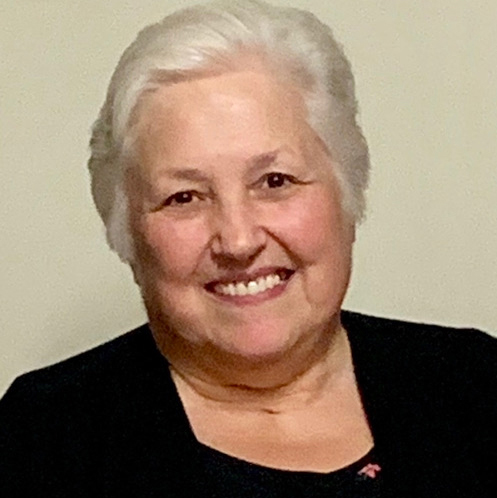
Originally from Viggiano, in the region of Basilicata, Palma “Nina” Alberti is the vice president of the Gruppo Anziano della Federazione Lucana.
Though she settled in Melbourne at a young age with her family, Alberti has always maintained strong ties to Italy.
Over the past year, she has come to realise the importance of getting vaccinated during this unprecedented time.
She got the first jab two months ago and is now waiting for the second.
“We’re all seniors at the club, that’s why I think it’s important to get vaccinated – to respect those around us and the most vulnerable members of the community,” she said.
Marcella Perpoli
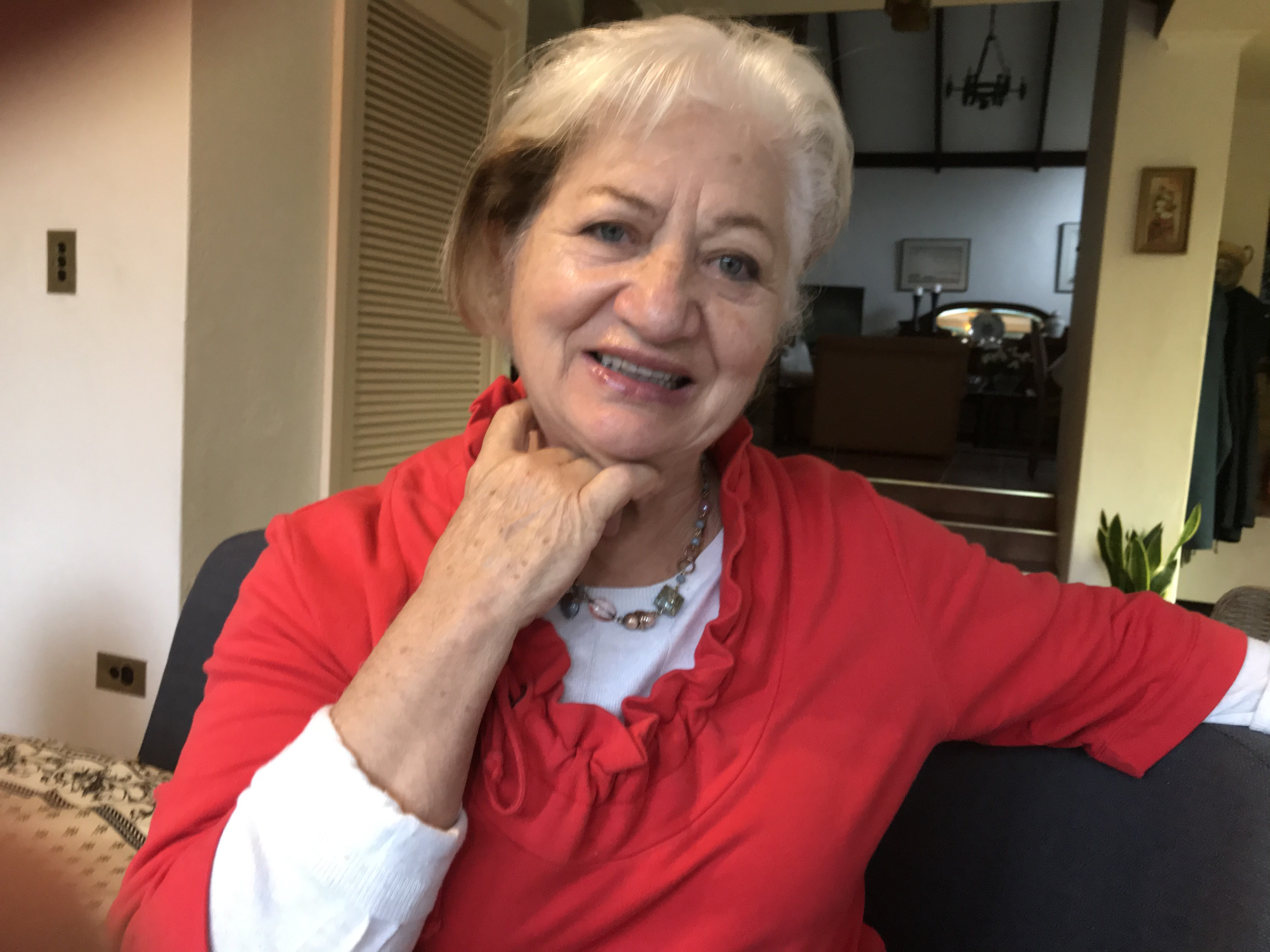
Marcella Perpoli is a health worker at the BASScare Residential Aged Care facility in Canterbury, where she works with elderly residents suffering from senile dementia.
Perpoli had expected to get the AstraZeneca vaccine in March, but she only just received the first dose on May 17.
She is now awaiting the second dose.
“My GP administered the first dose in her private clinic, so as to speed up the waiting time,” Perpoli said.
“I’m glad that the federal government has recently reiterated the importance of getting vaccinated, especially for health professionals and for those in contact with the most vulnerable members of our community.
“I certainly feel more at ease; it’s the first step towards normality.”
How to get vaccinated against COVID-19
You can call the Victorian government’s COVID vaccination hotline on 1800 571 121.
The government is currently reporting a “very high volume of calls”, however.
Some regional health services will have a local phone number listed on their websites which you can call to book an appointment.
You can also book an appointment with a local GP through the federal government’s COVID-19 vaccine eligibility checker.
If you have a disability or pre-existing medical condition, it is advised you discuss vaccination with your GP and receive the vaccine from them.
If you live in aged care, disability care, or other sensitive accommodation settings, you will be contacted to have your COVID-19 vaccine administered.
The Victorian government has a list of walk-in vaccination sites on its website, as well as wait times.
The availability of walk-in vaccinations is subject to change, depending on daily demand.
Here is the current list of vaccination centres across the state:
- Ascot Vale, Melbourne Showgrounds
- Ballarat, Mercure Ballarat Hotel and Convention Centre
- Bendigo, Bendigo Health COVID-19 Vaccination Clinic
- Broadmeadows, Broadmeadows Town Hall
- Capel Sound, Rosebud Hospital
- Carlton, Royal Exhibition Building
- Coburg, Coburg Uniting Church
- Cranbourne, Cranbourne Turf Club
- Deer Park, Deer Park IPC Health
- Epping, Northern Hospital
- Frankston, Frankston Hospital (John Madder Hall)
- Frankston, Peninsula Health - Bruce Park Hall
- Heidelberg Heights, Heidelberg Repatriation Hospital
- Melbourne CBD, Melbourne Convention and Exhibition Centre
- Reservoir, Reservoir IW Dole Reserve
- Ringwood, Ringwood East Community Clinic (Braeside Avenue)
- Sale, Gippsland Regional Sports Complex
- Shepparton, Shepparton Showgrounds
- South Morang, South Morang Plenty Ranges Arts and Convention Centre
- Springvale, Sandown Racecourse
- St Albans, Sunshine Hospital
- Traralgon East, Traralgon Racecourse
- West Melbourne, West Melbourne Cohealth
- Wodonga, Wodonga Vaccination Hub
- Wonthaggi, Wonthaggi Town Hall

